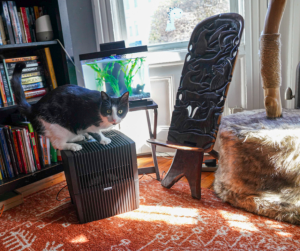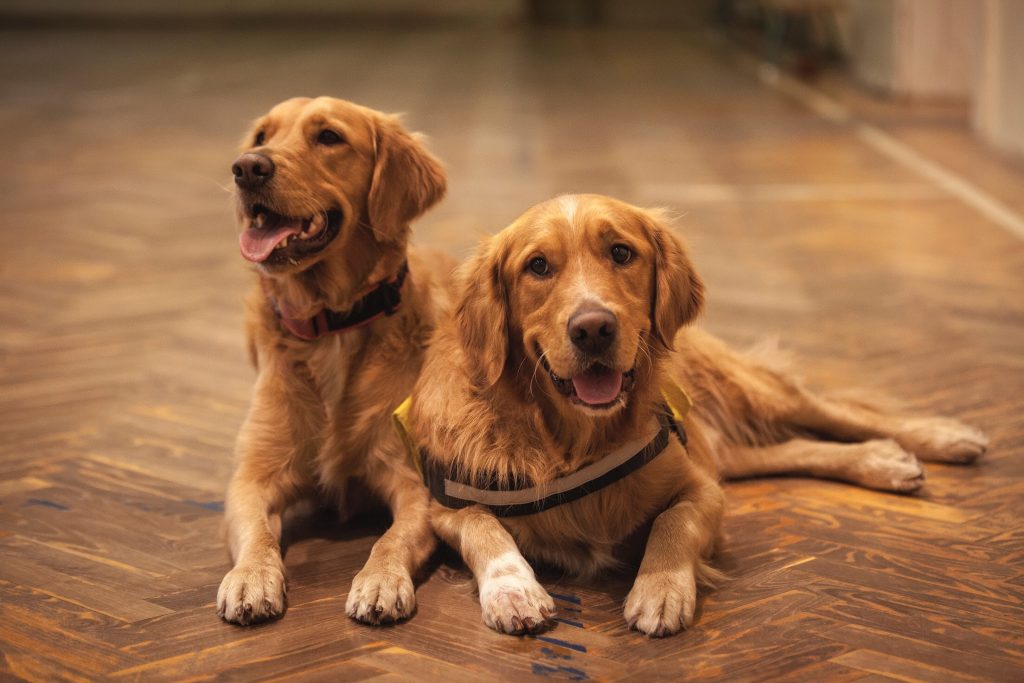Although adding a pet to your household can make your heart happy, the same can’t be said about your lungs. Their fur, dander, and other factors can affect the air you breathe. Household animals can become an issue, especially if you or your family have allergies. Here’s how pets can impact your indoor air quality and what you can do about it.
Pet Fur
Your beloved pet’s fur is part of what makes it irresistibly cute, but that cuteness comes with a price. When you have a pet at home, their hair gets everywhere. You can do your best with a lint roller, but the fur will always return.
Hair isn’t just a visual and sensory issue — it can cause respiratory problems that affect your daily life. You could inhale finer pieces that irritate your air passages and lungs. Pet fur can also trap mold, pollen, and other contaminants that trigger an allergic reaction. The more you bring your pet outdoors, the more allergens its hair can gather.
Pet Dander
Pet dander is one of the most common reasons behind pet allergies. It’s made up of microscopic skin particles animals shed. Most pets with fur and feathers can shed dander, which can also carry allergens.
The dander can trigger allergic reactions like sneezing, asthma, stuffy nose, and itchy eyes. It can also affect the skin by causing contact dermatitis or eczema.
Pet Saliva

People who are allergic to cats aren’t allergic to the whole animal. These allergies usually stem from their saliva, which can spread around the house through fur and dander. Cat allergens can also come from glands in the skin or eyes. They usually remain airborne and can quickly spread in your home.
Pet Waste
Pet urine and feces can also affect your home’s air quality. Waste can bring discomfort due to odor, but its effect on air quality goes beyond that. Pet droppings come with many bacteria that can spread through the air.
Additionally, when your pet accidentally does its business on rugs and carpets, the moisture can bring other problems. Mold and mildew might accumulate on the damp surface, filling your air with spores.
Pet Products
Not all pet products are safe to use. Some can negatively impact the air in your house. For instance, some anti-flea and tick products can expose your home to toxins. Sprays and foggers can disseminate harmful chemicals like fipronil and imidacloprid into your space. To avoid this issue, ask your vet for oral antiparasitic medication for your pet.
Another pet product that can contaminate your indoor air is cat litter. Some litter products produce dust that can irritate your respiratory system. Clumping litter with sodium bentonite can also cause lung issues. Litter made from other materials like wood and wheat are better for your health and the environment.
Dirt
Finally, pets can simply bring in dirt. Whenever your pet goes outside, it takes soil back to your home. Moreover, it can sneak into dirty areas of your house and spread dust around as they move.
Maintaining Home Air Quality with Pets

For many Americans, the benefits of pet ownership outweigh the challenges. In 2021, pet ownership rose to 70%, meaning 90.5 million U.S. homes have pets. Even though having furry friends around can affect the indoor air quality in your home, you can take steps to mitigate the problem.
Brush Your Pets
The first thing you can do is to stop the allergens from the source. Regularly brush your pet to control the amount of hair fall. You can also take them to the groomers regularly, so their fur is always clean and trimmed.
Clean Surfaces
You should regularly wipe down surfaces, especially those your pets always touch. Their saliva and sweat might stick to those areas and help spread allergens. Also, clean your pet’s waste thoroughly to avoid the spread of bacteria and mold spores.
Vacuum
Vacuuming your floors, carpets, and furniture is a good way to lessen the allergens in the air. Doing so can help alleviate the load on your HVAC system when filtering out contaminants. Invest in a vacuum cleaner with a high-efficiency particulate air filter to ensure you filter out microparticles.
Check Your HVAC Filters
Your HVAC air filter protects you from many air pollutants, so make sure to replace it regularly. Every time you replace your filter, set a reminder on your phone for two months later so you can check its status. If it’s already dirty and clogged, replace it — if it’s clean, put it back and set another reminder.
You can also ask an HVAC technician what filters are best for your unit. Look for the filter’s minimum efficiency reporting values (MERV) rating — it tells you how effectively a filter takes out different-sized particles. The higher the rating, the better it can catch pollutants. Ask your technician for the highest recommended filter MERV rating for your HVAC model.
Get Air Quality Devices

Venta Air Purifiers filter indoor air pollutants down to 0.07 microns with up to 99.995% efficiency. There is even an option to add an active carbon VENTAcarb filter. Check how much floor area each purifier can handle to ensure your unit can handle the size of the room. Much like with your HVAC filter, you must also regularly replace your air purifier filters. Luckily, VENTAcel and VENTAcarb Filters only need to be changed once a year.
Establish Pet-Free Zones
To help you maintain the air quality in some parts of your home, you can establish “pet-free zones.” Recommended spaces would be your bedroom and your children’s rooms. Add barriers and train your pets not to enter these spaces. Doing so can help you and your children sleep better at night without allergy symptoms. Pet-free zones can also help you lessen your cleaning duties, as you don’t have to worry about pet hair, dander, and waste in those areas.
Breathe Easy With Your Furry Friends
Living in a home with your beloved pets is a beautiful thing. They’re a bundle of joy and love, but caring for them can pose challenges. You don’t need to endure compromised air quality at home because of your pets. Through effective air purifiers and diligent cleaning and grooming, you can help reduce pollutants in the air and breathe easily at home with your furry friends.

